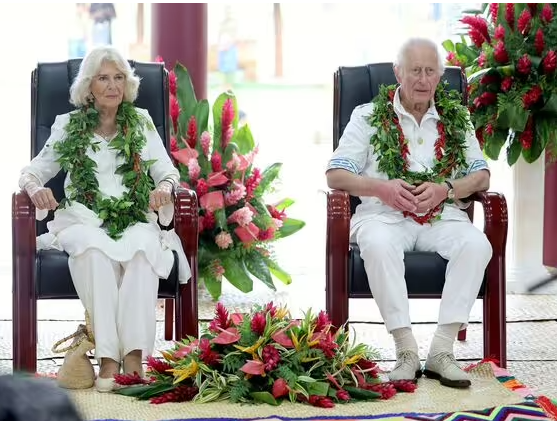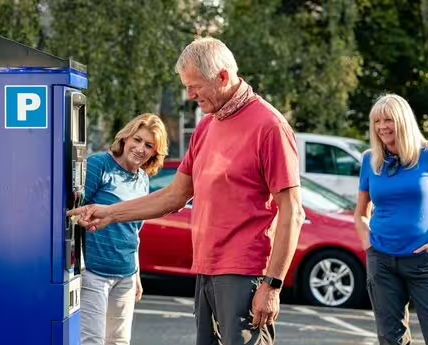Commonwealth leaders have defied the UK by putting slavery reparations on the agenda this week – but should the UK pay for the historical injustices? Vote and join the debate here.

King Charles and Queen Camilla are currently on tour in Samoa (Image: Getty)
The UK is facing a major rebellion at the Commonwealth Heads of Government Meeting as leaders prepare to bring a discussion on slavery reparations to the agenda, despite Downing Street’s insistence that it should remain off.
The meeting of 56 nations, beginning in Samoa on Friday, is intended to discuss “economic, environmental and security challenges” facing the bloc.
But according to a leaked communique seen by the BBC, Commonwealth officials were negotiating an agreement to begin a “meaningful conversation” and conduct research into the legacy of slavery, which could potentially leave the UK owing billions of pounds in reparations.
A UK government spokesperson said they would not comment on the leak to the BBC, but added: “Reparations are not on the agenda for the Commonwealth Heads of Government meeting. The government’s position has not changed – we do not pay reparations.
“We are focused on using the summit at [the Commonwealth Heads of Government Meeting] to discuss the shared opportunities which we can unlock across the Commonwealth – including securing more economic growth.”
In the run-up to this year’s summit, there have been growing calls from Commonwealth leaders for the UK to apologise and pay reparations for the country’s historic role in the slave trade.
A report published last year by the University of West Indies — backed by Patrick Robinson, a judge who sits on the International Court of Justice — concluded the UK owed more than £18trillion in reparations for its role in slavery in 14 Caribbean countries.
Between 1662 and 1807, Britain purchased an estimated 3.4 million Africans. Of this number, 2.9 million survived the journey and were sold into slavery in the Americas.
The transatlantic slave trade was the largest forced migration in human history and changed the course of human history, shaping the globe as we know it today.

